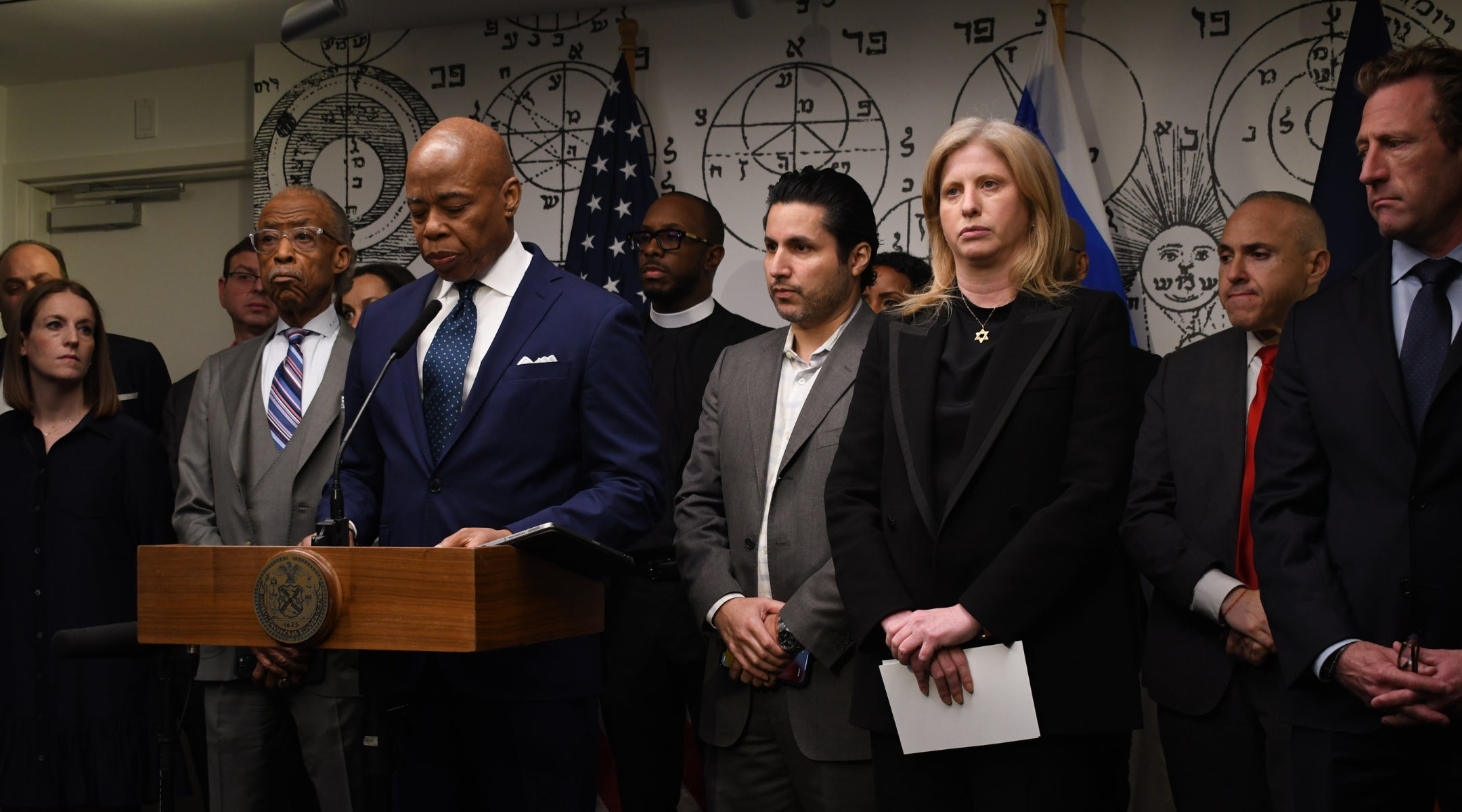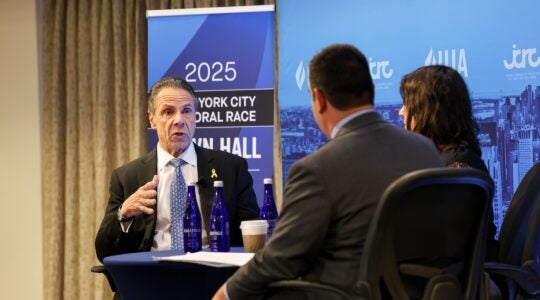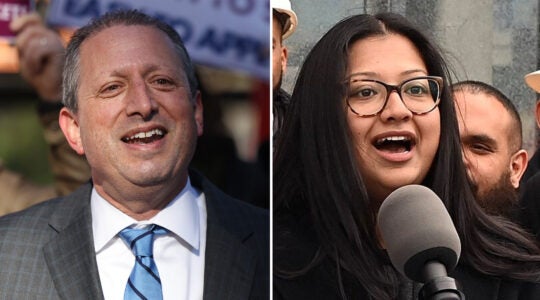When he arrived Thursday morning at Taboonia, the Druze restaurant he owns in Chelsea, Raif Rashed still didn’t know that two Israeli embassy employees had been gunned down outside a Jewish museum in Washington, D.C.
When he was told of the attack by a reporter, he exhaled: “Wow, wow, wow.”
Then, half-jokingly, he said his restaurant was open for anyone who needed a warm and safe space.
“I mean, when is all that going to be done?” he said. “If you feel — if you feel scared, you can come by. Don’t worry, we can protect you!”
Like a not-insignificant share of Israelis, Rashed has personal experience with violence. He’s lived in Jersey City, New Jersey, since 2019 but was in Israel on Oct. 7, 2023, and narrowly escaped the Hamas terror attack at the Nova music festival.
He also wasn’t the only Israeli in New York City to react to the murder of Yaron Lischinsky and Sarah Milgrim with responses honed in a country that has become used to terror attacks: initial shock, resignation and then a resolve to press on.
“It’s frightening and it’s difficult to leave it aside when it hits so close to home,” said Erela Nornberg, a family and child therapist. “But on the other hand, these things happen from time to time, and Israelis know that life must go on.”
Nornberg, like Rashid, has made it her job to create an inviting space for Israelis. After Oct. 7, she founded the Israeli Hug Center on the Upper West Side to offer support groups and services to Israelis. She extended drop-in hours on Thursday evening, anticipating that some people will feel a desire to connect after what happened in Washington.
But she said she understood that others might well feel a special urge to stay home.
“When you speak about trauma, there’s always an event, and then there are triggers that kind of bring you back to that event,” she said. “So it may trigger for some people different emotions.”
Nornberg, who has raised her three children in New York City, said she felt as safe Thursday as she does any day, including when she attended her son’s graduation at Columbia University Wednesday afternoon. Since Oct. 7 and the outbreak of the Gaza war, the campus has been fraught with pro-Palestinian protests, encampments and allegations of antisemitism.
“Did I feel safe? I don’t know if I feel safe, but I did it,” Nornberg said of the commencement. “Those are really crazy times. So I don’t feel safe anywhere.”
Gathering with other Israelis is a practice she’s honed over the past 19 months, since the Hamas attack.
“Really, as Israelis, we know that things can happen, and the most we can do is to stay together, support each other,” she said.
At an interfaith press briefing Thursday morning at the Center for Jewish History downtown, New York City Mayor Eric Adams — who is running for reelection as an independent candidate and exploring a run on an “EndAntiSemitism” ballot line — referred to the shooting as a “depraved act of terrorism” that will “leave a scar not only on Jewish citizens of this city and country, but for all of us of goodwill.”
He added, echoing a range of other voices, “This violence is exactly what they mean when you hear the words ‘Globalize the intifada.’ It is the actual playing out of these comments.”
Adams was joined by faith leaders from the Jewish, Muslim and Christian communities, as well as Jewish officials including Police Commissioner Jessica Tisch, Deputy Mayor Fabian Levy, and Moshe Davis, the new head of the Mayor’s Office to Combat Antisemitism.
The most direct physical link to the two victims in New York City is at the Israeli consulate in Turtle Bay. But Consul General Ofir Akunis said he is not worried about the consulate’s security — which is already tight on a normal day — or that of his employees.
Akunis said in an interivew that he has asked staff to be more vigilant of their surroundings, but is otherwise more confident in the atmosphere in New York than he was around this time last year, when pro-Palestinian protests on campus and on the streets were more visible.
“All of us and the employees themselves, they’re feeling very secure and safe in the city and around the embassy and around the consulate,” Akunis said. “But from time to time, right after such bad news, we need to be more careful.”
Akunis recalled a thwarted terror attack on the Israeli consulate in New York back in December, in which an 18-year-old college student from Virginia referred to the building as “a goldmine of targets” and revealed his plans to an undercover law enforcement agent.
The student, identified as Abdullah Ezzeldin Taha Mohamed Hassan, an Egyptian citizen and a resident of Falls Church, Virginia, was identified as an ISIS supporter, and charged with “distributing information about weapons of mass destruction online” as well as plans to plot a mass casualty attack.
Akunis did not know Lischinsky or Milgrim, who worked in Washington. He called their deaths “a huge tragedy.”
“We are always very much, let’s say, paying attention to the security issues,” Akunis said.
“But the threat is real,” he added. ““It’s not chantings and yellings anymore. It’s just someone took his rifle and shot two innocent people: a young, beautiful couple. It’s really unbelievable. So I hope that people will understand the real threat of the extremists.”
The New York Jewish Week brings you the stories behind the headlines, keeping you connected to Jewish life in New York. Help sustain the reporting you trust by donating today.




